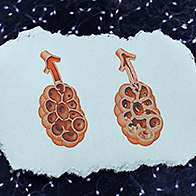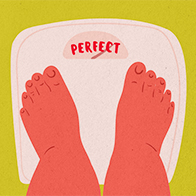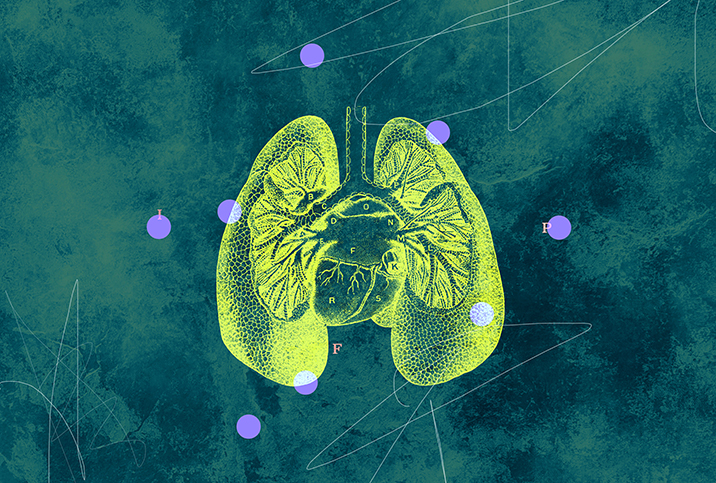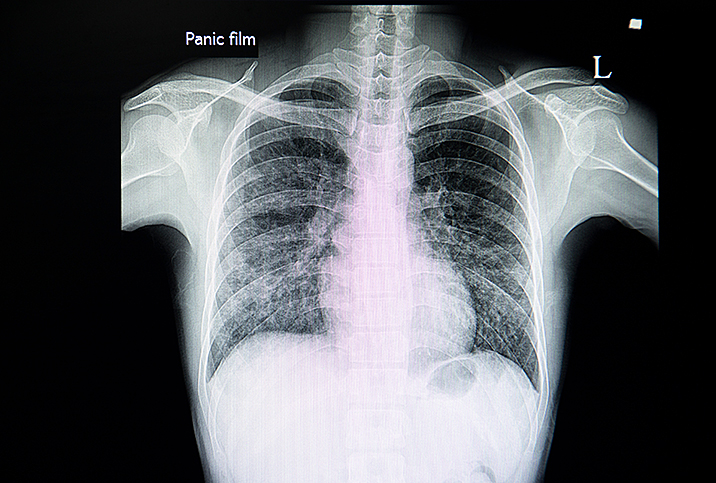For People With Cystic Fibrosis, Sex Can Be Different

Cystic fibrosis (CF) is a genetic disorder that affects the lungs and digestive system. CF affects approximately 35,000 people in the United States and is a lifelong condition.
People with cystic fibrosis have a mutation in the cystic fibrosis transmembrane conductance regulator (CFTR) gene. This gene helps control the movement of salt and water across body cells, so having a gene that doesn't work correctly—or is absent—affects the balance between salt and water in the body. This imbalance causes thick mucus to build up in the lungs, gut and parts of the digestive system, leading to lung infections and blockages in the digestive system.
Cystic fibrosis requires many ongoing treatments to help control symptoms and reduce complications. It can affect your breathing, energy levels, weight and body size/shape, and you may need to use equipment like home oxygen or have a chest port placed.
Needless to say, all aspects of CF can make navigating sex a bit trickier. But you can still have a great sex life.
Body image concerns
The buildup of mucus in people with cystic fibrosis affects the digestive system. The tubes that transport enzymes out of the pancreas become blocked due to the buildup of mucus. This causes the pancreas to become inflamed. For this reason, people with CF take enzyme supplements with their meals to aid food digestion. Growth and weight gain can be a problem, and nutrition is a key focus of managing cystic fibrosis.
"The relationship between nutrition, pulmonary function and survival is well-appreciated in CF. Thus, maintaining a healthy weight is a key focus of CF care," advised Traci M. Kazmerski, M.D., an assistant professor of pediatrics at the University of Pittsburgh School of Medicine. "With the increasing use of highly effective genetic modulators, people with CF are now gaining weight more easily, which may affect eating habits and body image."
Concerns about weight gain and weight loss can negatively impact body image, said Gill Brady, a cystic fibrosis clinical nurse specialist at NHS Tayside in Scotland. These perceptions can lead to problems with eating behaviors and disorders.
Kazmerski noted many people with cystic fibrosis experience increased rates of anxiety and depression compared to the general population, and the intense focus on weight by CF healthcare teams can lead to disordered eating habits.
"While the prevalence of body image concerns among people with CF is currently unknown, many suspect this is an emerging issue, especially in the era of highly effective modulators," Kazmerski added.
But weight is not the only body image concern that people with cystic fibrosis face. Postural changes can happen as a result of respiratory symptoms, too.
"Chronic lung conditions use muscles in the trunk of the body, which are also used for posture and breathing," Brady explained. "Therefore, when the body has to use these muscles excessively for breathing and coughing, posture can be affected."
CF patients also may have visible body scars from surgery—such as neonatal surgery when first diagnosed or lung transplant surgery—or possible scarring from ports, tubes and intravenous line insertions.
Brady said one of the most common body image issues raised with cystic fibrosis teams is "not conforming to the stereotypical image of beauty that is often portrayed on social media."
Body image is an essential aspect of sexual health, as a negative body image can impact sexual desire, arousal and experiences. If you find your body image is negatively affecting your sex life, use any of these recommended strategies:
- Communicate with your partner openly and honestly. Discussions about your concerns can have a positive effect on your relationship.
- Take time to recover from treatment and adapt to body changes if you have been particularly unwell or have undergone surgery.
- Help your partner understand your concerns—they cannot read your mind—and express your feelings. If you want to kiss but don't want it to lead to sex, you can communicate this by making descriptive offers such as, "I'd really like to kiss you, but I don't feel able to have sex today. Can we kiss with our clothes on?"
- Speak to your CF team. Your specialist team is accustomed to talking about sex and cystic fibrosis. Team members can help you find a counselor if you need help with body image, depression, anxiety or relationship issues.
Medical equipment and sex
Managing cystic fibrosis can involve a lot of medical equipment. You may have visible medical devices on your body, such as a chest port, a device implanted under the skin to draw blood and give treatments, or a gastrostomy tube, a feeding tube placed through the wall of the abdomen into the stomach. Some people with CF also use home oxygen equipment to help increase the oxygen levels in their blood.
Having visible medical equipment on your body can be a barrier to intimacy with sexual partners. Explain your concerns to your partner so they know how to support you and ensure sex is enjoyable for both of you.
Remember that sexuality and intimacy aren't exclusively about penetrative sex. You can find new ways to experience pleasure, new positions to have sex more comfortably and even be intimate without sex, too.
Dealing with physical symptoms during sexual activity
Kazmerski stressed that sex is an integral part of life, and cystic fibrosis does not decrease the desire to have sex or the need to be intimate with a partner. She noted that people with CF enjoy all forms of sex at the same rates as peers without cystic fibrosis.
"However, in a study of 188 16- to 24-year-old women with CF conducted in 2018, 1 out of every 6 reported issues with sexual functioning, and nearly one-third reported coughing during or after sex half the time or more," she added. "Several even reported hemoptysis—or coughing up blood—after engaging in sexual activities."
To reduce symptoms, Kazmerski advised people with CF to view sex as a form of exercise.
"If they become breathless during working out, they may have the same feeling during sex," she said. "Generally, if someone feels fine after climbing two flights of stairs, they are physically fit enough to have sex."
If symptoms do occur, Kazmerski said people with cystic fibrosis can prepare for sex with the following strategies:
- Doing airway clearance or respiratory treatments prior to sexual activities
- Opting for sexual positions that are less strenuous and do not put pressure on your chest
- Using pillows under your back
- Having partners take a more active role
It's essential to take breaks and communicate with your sexual partner if symptoms occur.
"Talking things through with someone you trust can help you work through your concerns and symptoms practically and emotionally," Brady said.
"If you need oxygen during exercise or other times during the day, you should wear oxygen during sex," Kazmerski added.
Genetics
You must inherit a faulty CFTR gene from both of your parents to get cystic fibrosis. As you then carry that defective gene, there is the possibility of passing it on to your children if both parents have a defective CFTR gene:
- 1 in 4 chance the baby will be born with cystic fibrosis
- 1 in 2 chance the baby will carry the faulty gene
- 1 in 4 chance the baby will not be a carrier and not have cystic fibrosis
The concern of passing the defective CFTR gene to children can impact the desire to have sex. Kazmerski noted her research team has conducted surveys among women with cystic fibrosis about this issue.
"We found that many people with CF have fears that their future children will have CF and would undergo genetic testing of their partner and/or their fetus to answer this question," she said.
"However, when looking at rates of sexual activity, we found no major differences in the types of sexual activities people with CF engage in, the number of sexual partners or the age when they began to have sex compared to people without CF," she continued.
Kazmerski explained people with cystic fibrosis may experience reticence to engage in sex if they fear passing the CF gene to children and are not using effective contraception to prevent pregnancy.
"We always encourage patients to express any concerns they may have," Brady said. "We offer a nonjudgmental, safe space to highlight potential concerns."
Both experts said patients are provided with information and education about genetics and cystic fibrosis carrier screening, and guided to accurate and evidence-based resources.
"Patients can also be referred to genetic or psychology counseling for support around these concerns," Brady said. "We acknowledge that worries of this kind can manifest into physical symptoms, such as lack of libido, and we support patients and their partners around strategies to help overcome them."




















